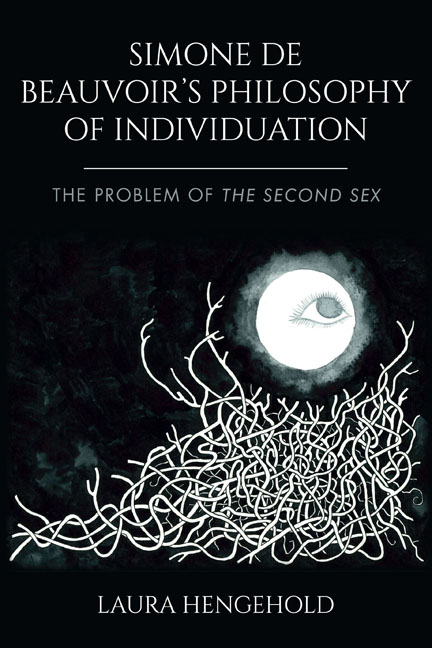4 - The Freedom of Others
Published online by Cambridge University Press: 23 June 2018
Summary
In the Politics, Aristotle identifies community – specifically the political state or polis – as part of what it means to be human, as an aspect of the form of being human that develops over time. Aristotle contends that there is no such thing as ‘form’ apart from specific formed individuals, but it is unclear how the form ‘enters’ matter; especially in the process of reproduction. Deleuze and Guattari's challenge to Aristotelian hylomorphism involves an alternative account of the forming and modulating process whereby various flows and becomings intersect reliably enough to strike the observer as individuals of a certain kind. If we ask about the generation of individual humans, we must also ask about the generation and individualisation of the social structures Aristotle considered a necessary effect and environment for human form.
Where does Mitsein come from, in other words? For the approach of Deleuze and Guattari implies that what Heidegger calls Mitsein is a process, not just an ontological condition of already-individuated beings whose being is given meaning by time. It cannot be, as for Heidegger, a given or universal; it must be a contingent assemblage – albeit a very common one. In other words, an event. But an event is also defined by a problem and its solutions. In Beauvoir's corpus, particularly The Second Sex, Mitsein is converted from a given into a problem, because of the way that its sense negatively affects women.
As Beauvoir noted in The Ethics of Ambiguity, the problem of Stoicism is that despite its individualism, ‘what depends on us’ depends on a plurality, not on an individual, and this plurality is riven with conflict (EA 82/119). Human beings, as a group and as individuals, are singular and not just numerically distinct assemblages. Thus, the event the Stoics believe we must counteractualise involves a heterogenous plurality of bodies with different interests. Beauvoir repeatedly tries to solve this problem by linking the moral freedom of the individual who is in the process of transcending or individuating to the moral freedom of those from whom she separates.
- Type
- Chapter
- Information
- Simone de Beauvoir's Philosophy of IndividuationThe Problem of The Second Sex, pp. 95 - 128Publisher: Edinburgh University PressPrint publication year: 2017



